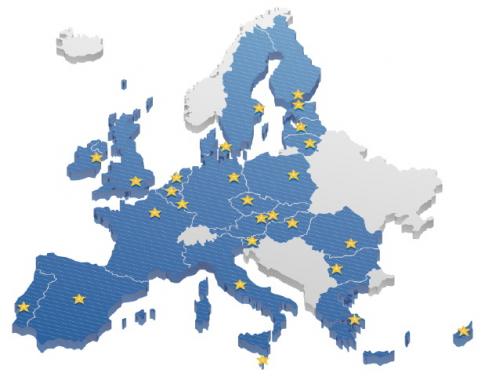Is Brussels under corporate sway?

From mobile phone charges to nations' interests, these shadowy agitators are estimated to influence 75% of European legislation...
When the Polish MEP Róża Thun was elected five years ago, she thought the job would be fairly straightforward. She hadn't reckoned with the lobbyists.
Take mobile phone charges. She saw the fact that EU citizens pay eye-watering sums in other EU states as an anomaly that needed fixing. But it wasn't that simple. "We had telephone companies and lobbyists who started to invade us," she recalls. "They obviously didn't want to reduce roaming charges because it would hit them in the pocket."
To stroll around the vast, ugly and permanent building site that is Brussels' European district is to brush up against the power of the lobbies. Every office block, every glass and steel construction within a kilometre of the European commission, council and parliament is peopled by Europe's biggest corporate names.
Thousands of companies, banks, law firms, PR consultancies and trade associations are there to bend ears and influence the regulations and laws that shape Europe's single market, fix trade deals, and govern economic and commercial behaviour in a union of 507 million.
Lobbying is a billion-euro industry in Brussels. According to Corporate Europe Observatory, a watchdog campaigning for greater transparency, there are at least 30,000 lobbyists in Brussels, nearly matching the 31,000 staff employed by the European commission and making it second only to Washington in the concentration of those seeking to affect legislation. Lobbyists sign a transparency register run by the parliament and the commission, though it is not mandatory.
By some estimates, they influence 75% of legislation. In principle, lobbyists give politicians information and arguments during the decision-making process. In practice, the corridors of the parliament often teem with individuals, who meet MEPs in their offices or in open spaces such as the "Mickey Mouse bar" (nicknamed so because of the shape of its seats) inside the parliament.
They explain their concerns, provide a "position paper", and send in suggestions for amendments to legislative proposals. Of course, the final decision is taken by MEPs. But examples are legion of the tail wagging the dog.
Lobbying is such a crucial part of the climate in Brussels that it has spawned manuals, a documentary (Who Really Runs the EU?) and even "the worst lobby awards". Not surprisingly, the biggest movers and shakers agitate for the biggest industries with the most to gain – and lose – from European legislation.
/Ian Traynor, the Guardian; Bartłomiej Kuraś, Gazeta Wyborcza; Philippe Ricard, Le Monde; Ignacio Fariza Somolinos, El País; Javier Cáceres, Süddeutsche Zeitung; Marco Zetterin, La Stampa




 del.icio.us
del.icio.us Digg
Digg

Post your comment